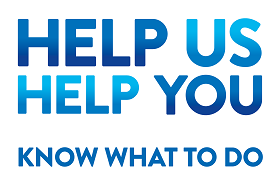Making our work accessible for you
We believe that all our residents should have the same opportunities to get involved in our work.
One of the ways we work do this is to offer the information we share with you in different formats so you can choose, or request the one that works best for you.
This includes making materials and information available in large print, easy read, Braille or in a different language if that is what works for you.
You should also be able to contact us, or expect us to contact you in an accessible way like email or text message, as well as traditional methods, like letters in you prefer.
If you come to one of our events we will ask if you have any communications requirements, such as needing a British Sign Language interpreter, or if you have any other requests relating to the venue, like a ramp at the entrance.
Here are some examples of how we build this commitment into our daily work.
- We ask anyone who signs up to our mailing list if they have any communications requirements and we log this on our database, where we keep your details safely and securely in line with privacy laws.
- Our website includes accessibility tools on the homepage menu, so people can choose to view our site in a different language, colour or, using a text reader, listen to the information it contains.
- We have designed our website in line with accessibility standards and we have explained how we do this in more detail for anyone who is interested in finding out more.
- We have worked with Merseyside Society for Deaf People to produce a short film with subtitles and sign language that signposts people to help and support. Link to complaints.
- When we carry out engagement or consultation exercises we regularly provide supporting materials in a range of formats like large print or easy read.
- We plan our public engagement events with accessibility in mind, from choosing the venue to designing the agenda
- We strive to make sure our engagement reports and materials are written in plan England and our Big Chat reports are examples of this.
- We are starting to produce all the short films and clips we make for our website and social media accounts with sound and subtitles.
- We support Sefton Council’s accessibility and communications ‘Top 10 tips’ tool and encourage our staff to use this easy guide in their daily work.
- We have developed reasonable adjustment and disability guide to help our staff support you to get involved in our work. We publish this guidance so you know what to expect when you ask us for help to get involved in our work.
- We support our staff to ensure their work meets the 5 steps of the Accessible Information Standard.
- All these examples show how we work towards the national Accessible Information Standard. You can find out more about the standard from the NHS England website.
You can contact us with any queries you have about accessibility.





